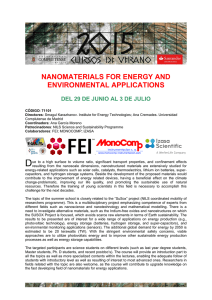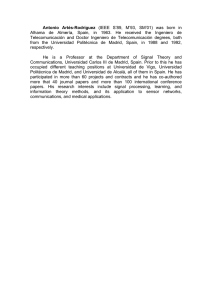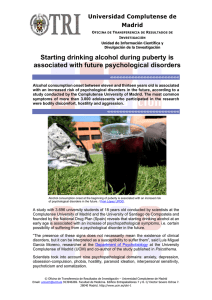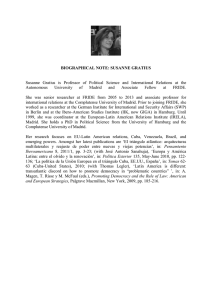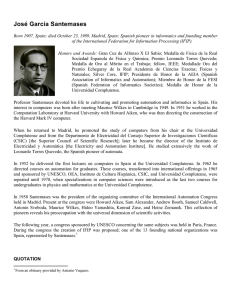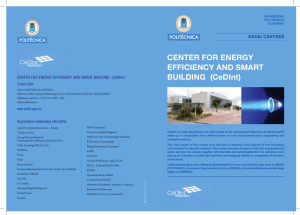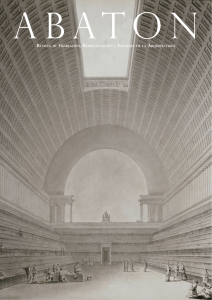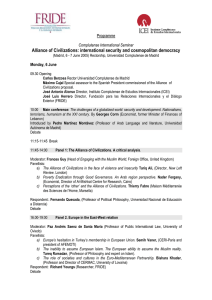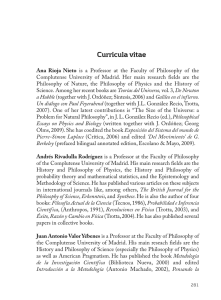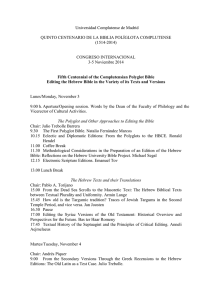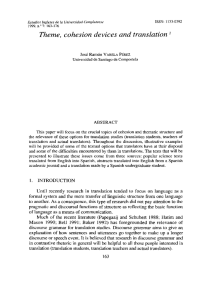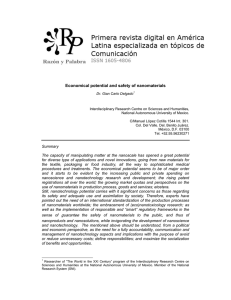I International Summer School on:
Anuncio
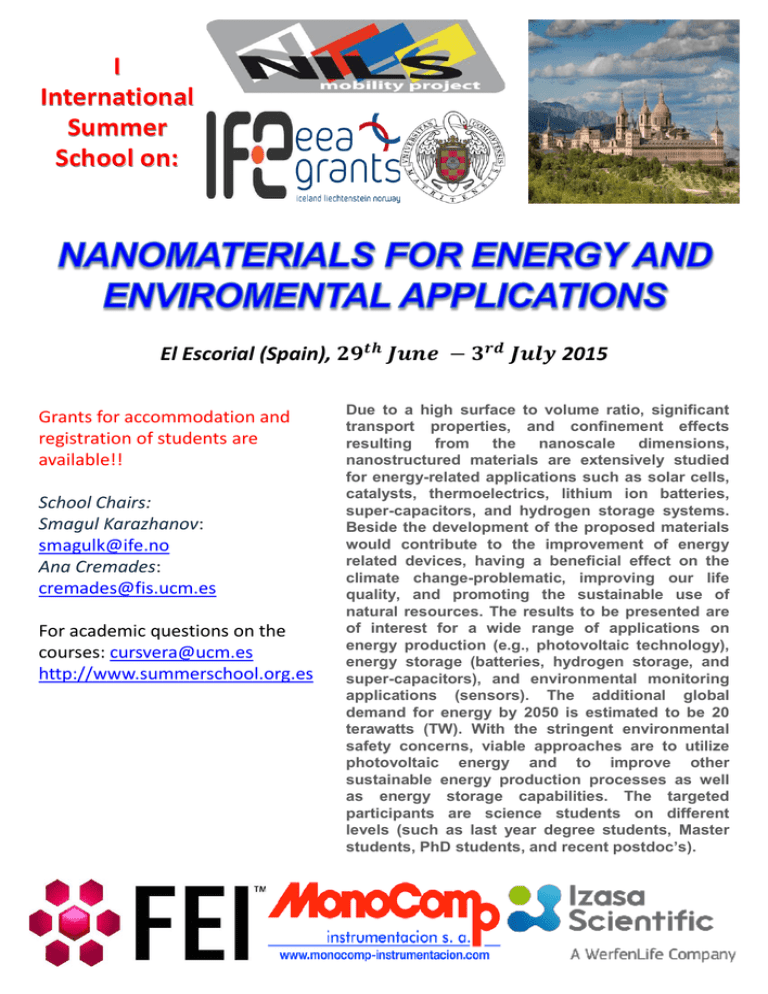
cxcvdsdvxcvc I International Summer School on: El Escorial (Spain), 𝟐𝟗𝒕𝒉 𝑱𝒖𝒏𝒆 − 𝟑𝒓𝒅 𝑱𝒖𝒍𝒚 2015 Grants for accommodation and registration of students are available!! School Chairs: Smagul Karazhanov: [email protected] Ana Cremades: [email protected] For academic questions on the courses: [email protected] http://www.summerschool.org.es Due to a high surface to volume ratio, significant transport properties, and confinement effects resulting from the nanoscale dimensions, nanostructured materials are extensively studied for energy-related applications such as solar cells, catalysts, thermoelectrics, lithium ion batteries, super-capacitors, and hydrogen storage systems. Beside the development of the proposed materials would contribute to the improvement of energy related devices, having a beneficial effect on the climate change-problematic, improving our life quality, and promoting the sustainable use of natural resources. The results to be presented are of interest for a wide range of applications on energy production (e.g., photovoltaic technology), energy storage (batteries, hydrogen storage, and super-capacitors), and environmental monitoring applications (sensors). The additional global demand for energy by 2050 is estimated to be 20 terawatts (TW). With the stringent environmental safety concerns, viable approaches are to utilize photovoltaic energy and to improve other sustainable energy production processes as well as energy storage capabilities. The targeted participants are science students on different levels (such as last year degree students, Master students, PhD students, and recent postdoc’s). Program June 29, Monday 10 : 30 h Smagul Karazhanov, Institute for Energy Technology. Ana Cremades, Universidad Complutense de Madrid, and Institutional Representant of UCM or NILS. Openning Session. 10 : 45 h Bianchi Méndez. Universidad Complutense de Madrid. Introduction to nanomaterials 12 : 00 h Erik Marstein. Institute for Energy Technologies. Nanostructures for solar cells I: Advanced materials for high efficency 16 : 30 h Round Table: Short presentations, poster and best poster nomination. Chairpersons: Bianchi Méndez, Erik Marstein, Institute for Energy Technologies June 30, Tuesday 10 : 30 h Josefine Selj. Institute for Energy Technologies. Nanoestructures for solar cells II: Light Trapping 12 : 00 h Guillermo Orellana. Universidad Complutense de Madrid. Nanoestructures for chemical sensing applications 16 : 30 h Round Table: Enviromental and sustinable architecture applications on nanomaterials. Chairpersons: Smagul Karazhanov. Participants: Josefine Selj, Guillermo Orellana, and Pedro Hidalgo, Universidad Complutense de Madrid. July 1, Wednesday 10 : 30 h Bjørn Hauback. Institute for Energy Technologies. Nanomaterials for hydrogen storage. 12 : 00 h Plenary conference open to all participants. 16 : 30 h Round Table: International Coordinated Research within Nils Programme and other international frameworks. Chairperson: Ana Cremades. Participants: Marta Aguerri, NILS Programme Director, Bjørn Hauback, Julio Ramírez. July 2, Thursday 10 : 30 h Julio Ramírez. Universidad Complutense de Madrid. Nanomaterials characterization I: advanced transmission electron microscopy. 12 : 00 h Ana Cremades. Universidad Complutense de Madrid. Nano and micro -resonators and nanogenerators. 16 : 30 h Activity: Nanomaterials: Let’s Play! Chairpersons: Paloma Fernandez, Universidad Complutense de Madrid, David Maestre, Universidad Complutense de Madrid, and Emilio Nogales, Universidad Complutense de Madrid. July 3, Friday 10 : 30 h David Maestre. Universidad Complutense de Madrid. Nanomaterials characterization II: advanced spectroscopies. 12 : 00 h Smagul Karazhanov. Institute for Energy Technology. Nanoparticles and Device Modelling. 16 : 30 h Smagul Karazhanov, Ana Cremades, and Institutional Representant of UCM or NILS. Closing session and presentation of diplomas.
